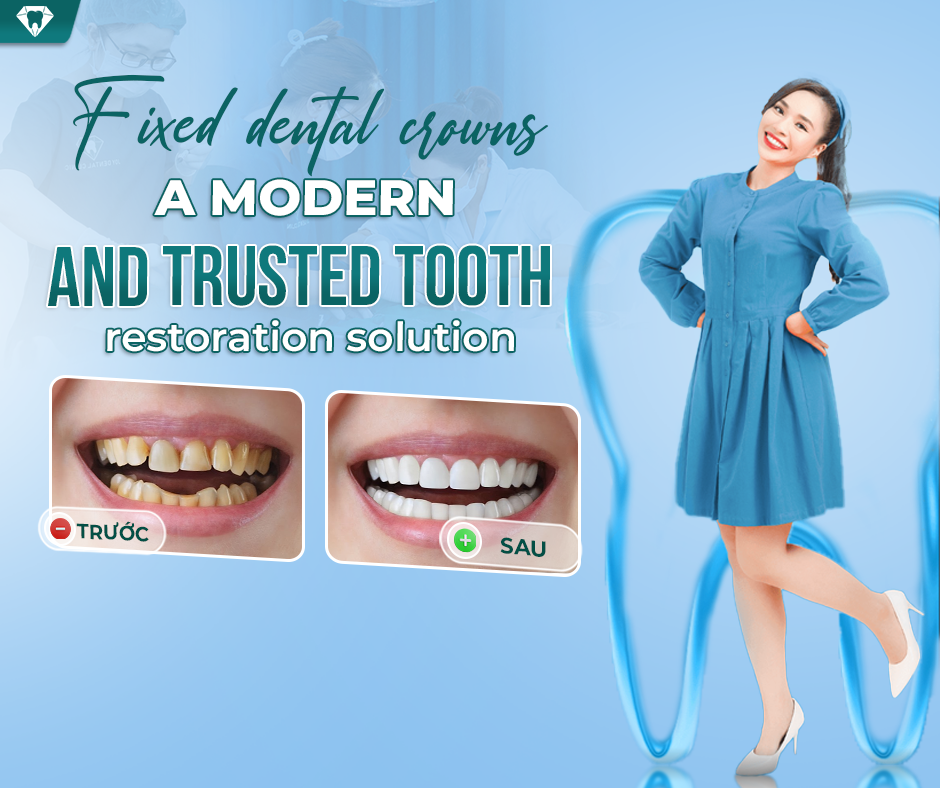Fixed dental crowns have become an increasingly popular solution for tooth restoration. This method is widely chosen due to its excellent aesthetics, long-lasting durability, and the ability to restore chewing function almost identical to natural teeth. However, many people still hesitate and wonder whether they should opt for fixed dental crowns, and which method would be the safest and most suitable. In this article, Joy International Dental Clinic will help you understand everything about this dental restoration technique, enabling you to make the best decision for your oral health.
1. What Is Fixed Dental Crown Restoration?
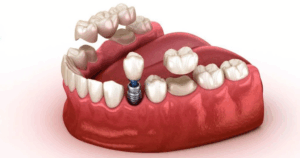
Fixed dental crowns refer to a restorative dental procedure where prosthetic crowns are permanently attached to the dental arch. These crowns are used to replace damaged, decayed, or missing teeth. Unlike removable dentures that can be taken out for cleaning, fixed crowns are securely affixed to either natural teeth or dental implants. This provides a natural chewing sensation and stable functionality.
Dental crowns are commonly made from materials such as all-ceramic (zirconia, cercon) or porcelain fused to metal. These materials are chosen for their strength, durability, and high biocompatibility. Not only do they restore chewing ability, but they also improve the overall appearance of your smile. This method is especially suitable for people who have been missing teeth for a long time, experienced jawbone loss, or simply wish to improve their dental aesthetics in the long term.
2. Most Common Methods of Fixed Dental Crowns Today
Depending on the individual’s oral health condition, the number of missing teeth, and their financial capacity, the dentist will recommend one of the two most popular fixed dental crown methods:
2.1. Fixed Dental Crowns with Dental Implants
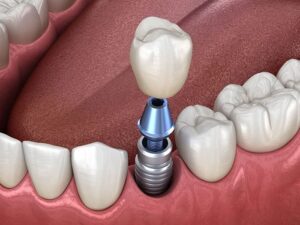
Dental implants are a cutting-edge solution that closely mimics the natural tooth structure. The procedure involves inserting a titanium post into the jawbone to act as a tooth root. After a healing period known as osseointegration, which takes about 2 to 6 months, a ceramic crown is placed on the implant to complete the tooth.
This method comes with a range of outstanding benefits. Dental implants can last over 20 years, or even a lifetime, with proper care. One of the key advantages is that surrounding teeth do not need to be filed down, preserving your natural tooth structure. Additionally, implants help prevent bone loss caused by prolonged tooth absence. Most importantly, implants restore full chewing functionality and provide a sensation nearly identical to that of natural teeth, making daily life easier and more comfortable.
However, these benefits come at a higher cost. The procedure also takes longer to complete and requires a highly skilled dentist to ensure safe and successful implantation.
2.2. Fixed Crowns with Dental Bridges
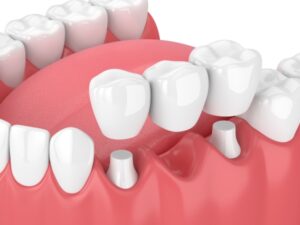
Dental bridges are a more traditional restoration method, often used when one or several teeth are missing. In this approach, the dentist will file down the adjacent healthy teeth on either side of the gap to serve as anchors. A bridge made of three or more connected crowns is then placed over these anchor teeth and the gap.
The main advantage of dental bridges is that they are generally more affordable than implants. They also require less time, with the full procedure typically completed within 5 to 7 days. Despite being simpler and faster, bridges still deliver highly aesthetic results, giving you a confident, radiant smile.
That said, dental bridges also have certain drawbacks. Because they require the adjacent teeth to be filed down, there is a risk of weakening those teeth over time. This method also does not prevent bone loss in the area of the missing teeth, and its longevity is generally lower than that of dental implants.
3. Which Fixed Dental Crown Method Is the Best?
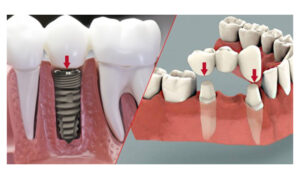
Both methods come with their own advantages and limitations. Choosing the most suitable method depends on multiple factors such as your current oral health, general health condition, age, and financial considerations.
Dental implants are often recommended for younger patients who are looking for a long-term solution, have healthy jawbones, and meet the general health requirements for surgery. This method is ideal for fully restoring chewing function and preserving jawbone health.
On the other hand, dental bridges are more appropriate for older individuals with strong adjacent teeth and who prefer a quicker and more cost-effective solution.
At Joy International Dental Clinic, we have a team of highly experienced and specialized dentists who prioritize patient well-being. You will undergo thorough consultation, including X-ray imaging and comprehensive analysis, to determine the most suitable restoration plan. Our goal is to ensure safety, effectiveness, and long-lasting results for every patient.
4. How to Care for Fixed Dental Crowns
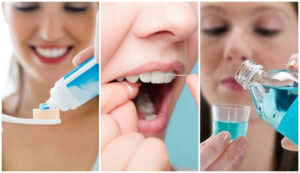
Regardless of whether you choose implants or bridges, post-restoration care is crucial for maintaining the durability and aesthetics of your dental crowns. Here are some essential care tips:
-
Brush your teeth at least twice daily using a soft-bristled toothbrush. Opt for fluoride toothpaste to help protect your teeth and crowns.
-
Use additional oral hygiene tools such as dental floss and water flossers to clean the areas between teeth and along the gum line, where your toothbrush may not reach effectively.
-
Avoid consuming extremely hard, hot, or cold foods. These can potentially crack the crown or damage the bonding between the crown and the underlying tooth or implant.
-
Regular dental check-ups are essential after the procedure. They help monitor the condition of your restoration and address any issues early.
-
Completely avoid smoking and excessive alcohol consumption. These habits can discolor the crown, affect gum health, and reduce the longevity of your dental work.
Conclusion
In summary, fixed dental crowns are a modern and highly effective solution for restoring both the function and aesthetics of your teeth. They help bring back your confident smile and improve your quality of life. If you are still unsure about which restoration method to choose, we hope that this comprehensive guide from Joy International Dental Clinic has provided you with valuable insights. With the right knowledge and professional support, you can make a wise and informed decision for your oral health.

